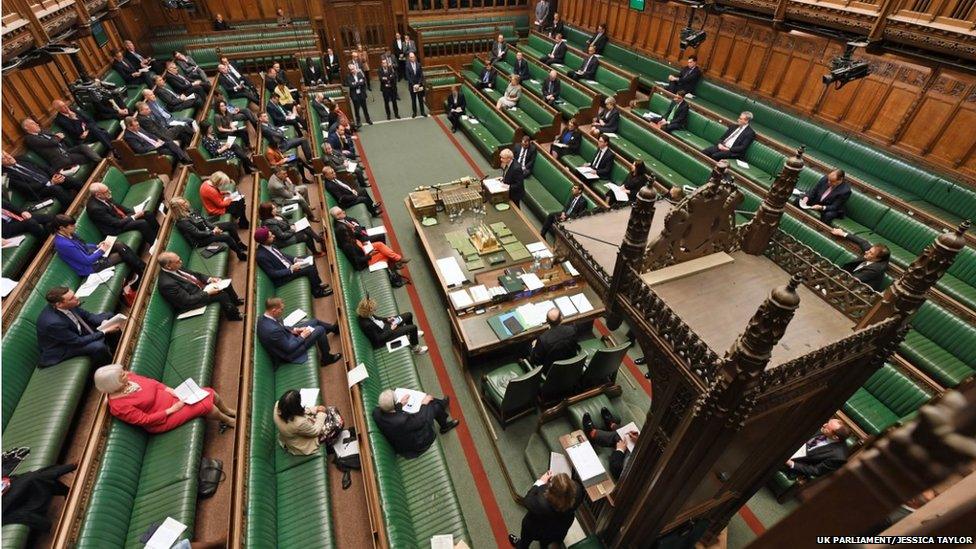Commons could close early due to coronavirus
- Published

The bird's eye view of the Commons from PMQs showed space on the green benches
MPs could break early for the Easter recess amid the coronavirus crisis, a cabinet minister has suggested.
Jacob Rees-Mogg said the option to close early was being considered but added that emergency legislation needed to be approved first.
MPs will see other changes to the way the House of Commons runs, including a ban on alcohol sales.
Speaker Sir Lindsay Hoyle also said voting would take longer to allow for social distancing.
Addressing MPs Sir Lindsay said votes would now take up to 40 minutes, rather than the customary 15 to ensure MPs kept a safe distance from each other.
The question of closing the House of Commons early was raised by SNP MP Patrick Grady who said: "The continuing business of the House continues to put pressure on staff, pressure on members.
"Can the leader say what consideration is being given to bring recess forward to the end of this week because the reality is that any of us that return to our constituencies from London, the epicentre of the virus, are going to have to self-isolate?"
In response, the Leader of the House, Mr Rees-Mogg, said: "I can assure the honourable gentleman that that is being considered."
MPs are considering the Coronavirus Bill which gives the government new emergency powers to combat the spread of the disease.
Mr Rees-Mogg said that the bill needed to pass this week - however, he suggested other bills, such as the Toilets Rate Relief Bill, could be postponed until after the Easter break.
The House of Commons had been due to break for Easter on 31 March.
Alcohol ban
Before debate began on the Coronavirus Bill, Sir Lindsay announced changes to how the House of Commons would operate following the continued spread of the virus.
In addition to suspending alcohol sales in House of Commons catering venues, some canteen facilities will be closed.
He also said over the Easter recess, work would take place to make video conferencing easier.
And on voting, he said the entry of MPs into the division lobbies - where members cast their votes - would be staggered to allow for social distancing.
Sir Lindsay also encouraged MPs to "think twice" before tabling questions to ministers warning that too many inquiries could "block up" civil servants working on the coronavirus.